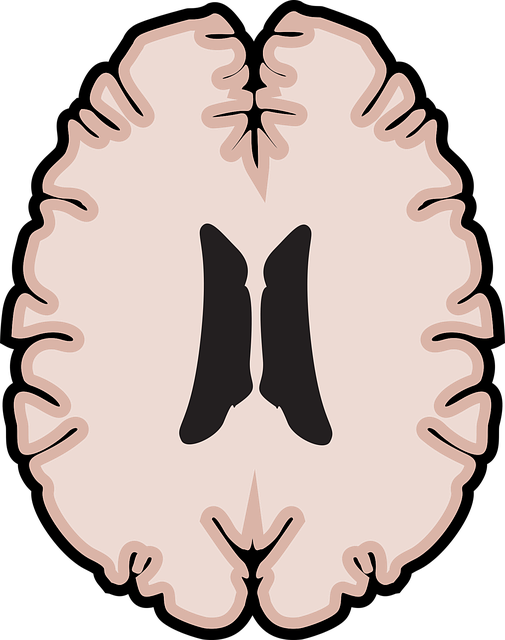Postpartum depression (PPD) is a significant challenge for mental health professionals in Lone Tree, requiring tailored strategies. Therapists can combat PPD by incorporating self-awareness and stress reduction techniques, encouraging mindfulness to prevent and treat mood disorders. The "Lone Tree" effect poses risks to therapists' well-being, emphasizing the need for effective communication, self-care, and specialized training. A comprehensive risk management plan, including clear protocols and regular updates, is vital. By prioritizing client and therapist safety through continuous monitoring and tailored plans, Lone Tree postpartum depression therapy can provide secure, effective care.
Mental health professionals often encounter complex challenges, with postpartum depression (PPD) being a growing concern. This article explores strategic risk management planning, focusing on PPD within clinical settings. We delve into the ‘Lone Tree Effect’—a phenomenon highlighting vulnerabilities in isolation-prone practices. Through comprehensive risk assessment and tailored strategies, therapists can enhance safety. Implementing adaptable plans for therapy delivery ensures effective support for clients facing PPD while fostering a resilient practice environment.
- Understanding the Risks: Postpartum Depression in Mental Health Practices
- Identifying Vulnerabilities: The Lone Tree Effect and its Impact
- Developing a Comprehensive Risk Management Plan
- Implementing Strategies for Safe and Effective Therapy Delivery
- Continuous Monitoring and Adaptability: Ensuring Client Well-being Long-term
Understanding the Risks: Postpartum Depression in Mental Health Practices

Postpartum depression (PPD) is a significant risk that mental health professionals must address in their practices, especially when catering to new mothers. This often overlooked aspect of maternal mental health can present unique challenges within the therapeutic setting. Many women experience a profound shift in emotions and mood following childbirth, which may include feelings of sadness, anxiety, and exhaustion. Mental health practitioners in Lone Tree or any location must be equipped to recognize these signs and provide specialized care.
Incorporating self-awareness exercises and stress reduction methods into therapy sessions can aid in managing PPD. Encouraging clients to develop inner strength through mindfulness practices might be a game-changer in preventing and treating postpartum mood disorders. By being attuned to their own emotional well-being, therapists can better support their clients’ journeys towards recovery, ensuring a healthier and more supportive therapeutic environment.
Identifying Vulnerabilities: The Lone Tree Effect and its Impact

Mental health professionals often find themselves as lone figures, tending to clients’ emotional needs in a vast and complex landscape. This isolated nature, sometimes referred to as the “Lone Tree” effect, can have significant implications for their well-being, particularly when dealing with vulnerable populations like new mothers experiencing postpartum depression. The isolation can lead to increased stress, burnout, and even exacerbation of personal mental health challenges, such as loneliness or depression.
This phenomenon hinders the professionals’ ability to access support and resources readily available in a collaborative setting. To mitigate these risks, therapists must employ effective communication strategies and build resilient networks. Encouraging open dialogue with colleagues, participating in peer support groups, and adopting confidence-boosting techniques can help combat the Lone Tree effect. Additionally, prioritizing depression prevention through self-care practices and seeking specialized training can ensure professionals are better equipped to handle their own mental health while providing compassionate therapy for clients like those struggling with postpartum depression.
Developing a Comprehensive Risk Management Plan

Developing a comprehensive risk management plan is essential for mental health professionals, especially those specializing in areas like postpartum depression therapy at Lone Tree Postpartum Depression Therapy. This proactive approach involves identifying potential risks and implementing strategies to mitigate them before they escalate. A well-structured plan should incorporate various elements such as clear communication protocols, regular self-care practices for burnout prevention, and the integration of mindfulness meditation techniques to enhance emotional resilience.
By prioritizing these aspects, mental health professionals can create a supportive work environment that facilitates effective therapy sessions while also promoting their own emotional healing processes. It’s crucial to regularly review and update the risk management plan, given the dynamic nature of the field and individual client needs. This ensures that strategies remain relevant and effective in navigating the challenges inherent in providing sensitive mental health services.
Implementing Strategies for Safe and Effective Therapy Delivery

Implementing strategies for safe and effective therapy delivery is paramount for mental health professionals, especially when addressing complex issues like postpartum depression in Lone Tree. Effective communication strategies are the cornerstone of this process. By establishing clear and open lines of dialogue with clients, therapists can gain insights into their unique experiences and develop tailored treatment plans. This approach not only fosters trust but also ensures that the emotional healing processes are culturally sensitive and tailored to individual needs.
Risk assessment is another critical component. Mental health professionals must be adept at identifying potential risks and implementing measures to mitigate them. This includes regular monitoring of client progress, contingency planning for crisis situations, and ensuring a safe and secure therapeutic environment. By integrating these practices, Lone Tree postpartum depression therapy can offer transformative support while prioritizing the safety and well-being of both therapist and client.
Continuous Monitoring and Adaptability: Ensuring Client Well-being Long-term

In mental health therapy, continuous monitoring is a cornerstone of effective risk management planning, especially for conditions like postpartum depression, where early intervention can be a game-changer. Lone Tree Postpartum Depression Therapy professionals must remain vigilant in assessing client progress and adjusting treatment strategies accordingly. This adaptability ensures that interventions remain tailored to the evolving needs of each individual, fostering better outcomes and enhancing overall mental wellness.
By implementing robust monitoring systems, therapists can identify subtle changes in client conditions and promptly introduce relevant Anxiety Relief techniques or Social Skills Training modules from their Mental Wellness Coaching Programs Development repertoire. Such proactive measures not only mitigate risks but also demonstrate a commitment to long-term well-being, fostering trust and strengthening the therapeutic bond.
Mental health professionals play a vital role in addressing complex issues like postpartum depression. By understanding the risks associated with these conditions, such as the “Lone Tree” effect and its impact on vulnerable clients, practitioners can develop robust risk management plans. Implementing strategies for safe therapy delivery, continuous monitoring, and adaptability ensures not only effective treatment but also long-term well-being for both professionals and clients. Embracing these measures is essential to foster a supportive environment, prevent potential harms, and enhance the quality of care in mental health practices, especially when navigating delicate cases like postpartum depression.








